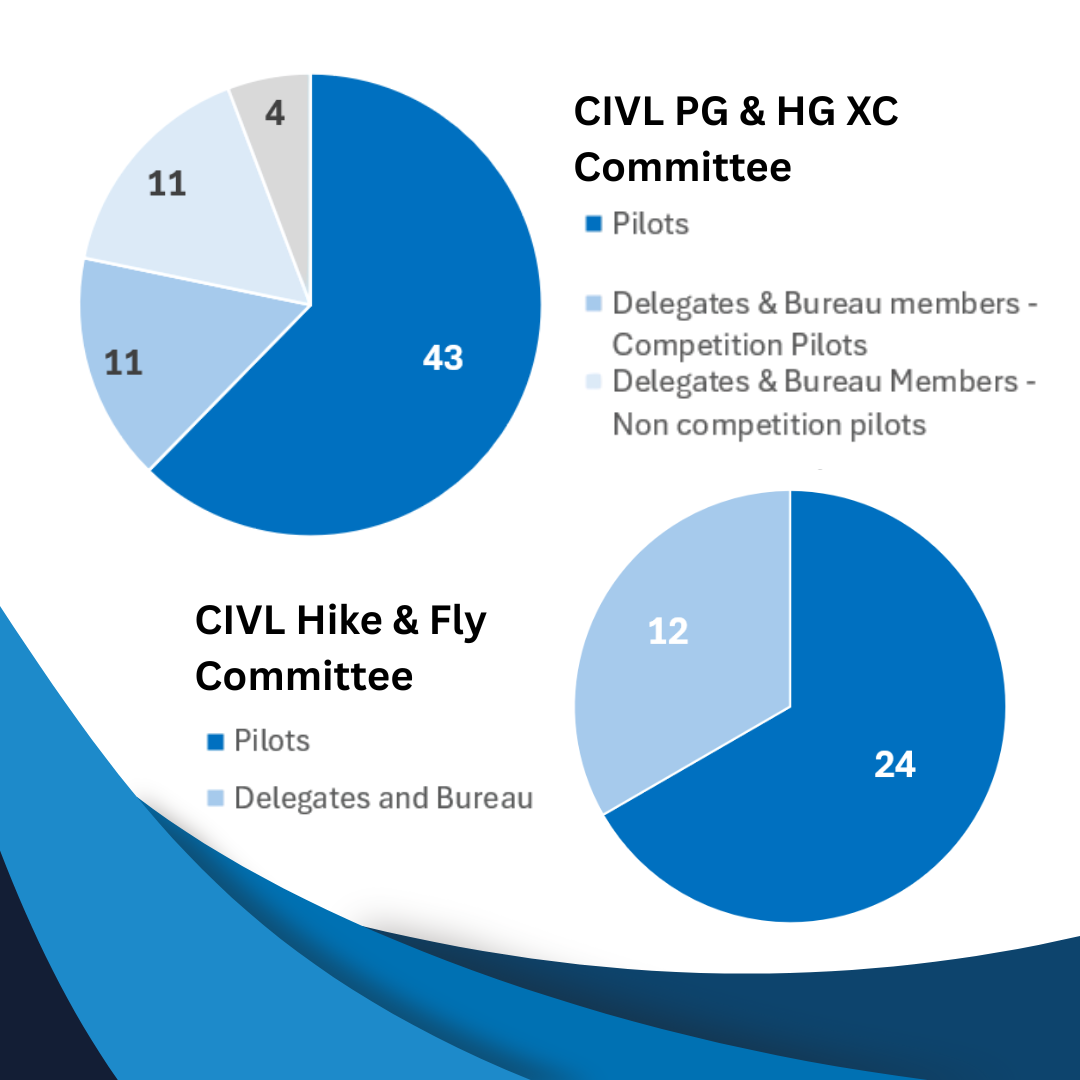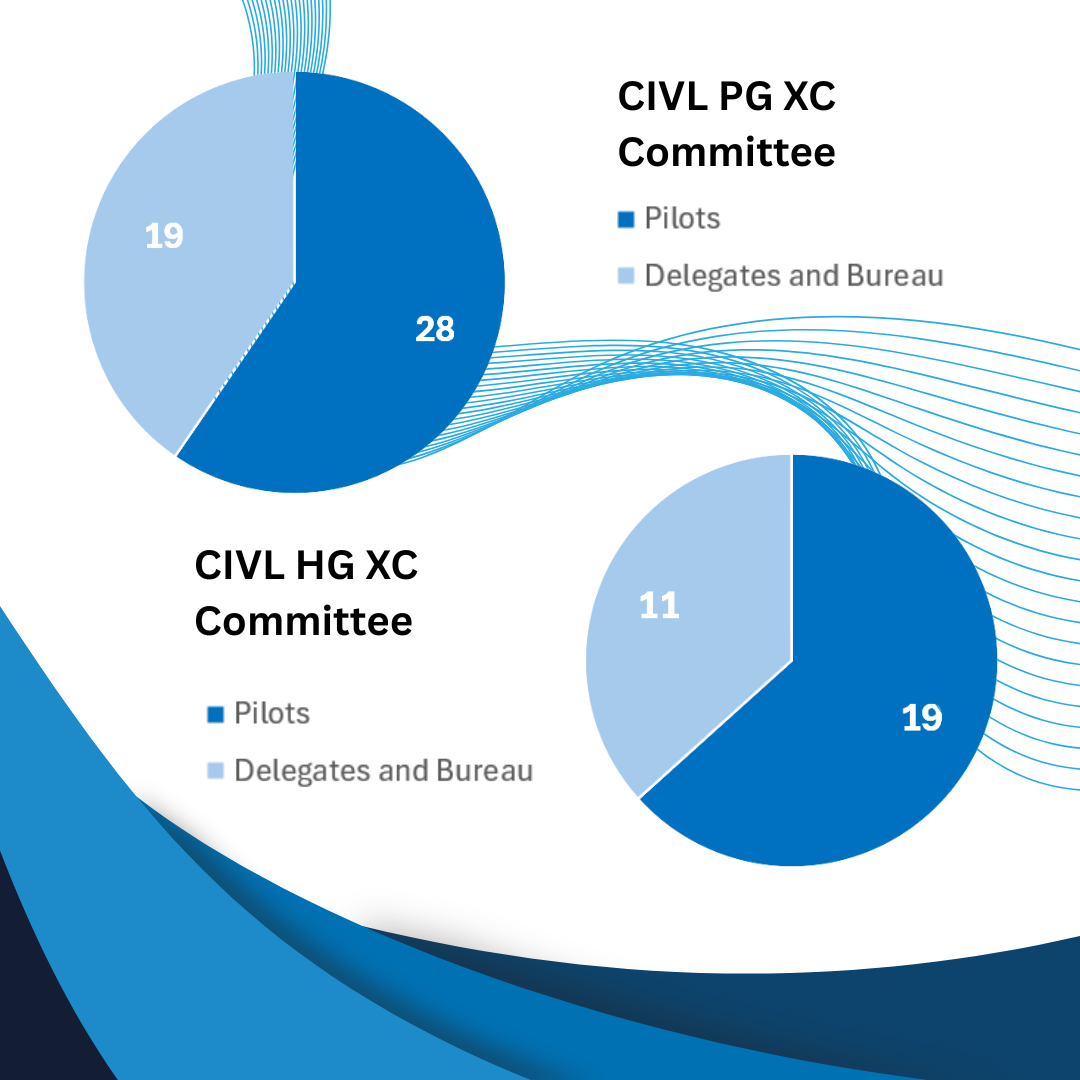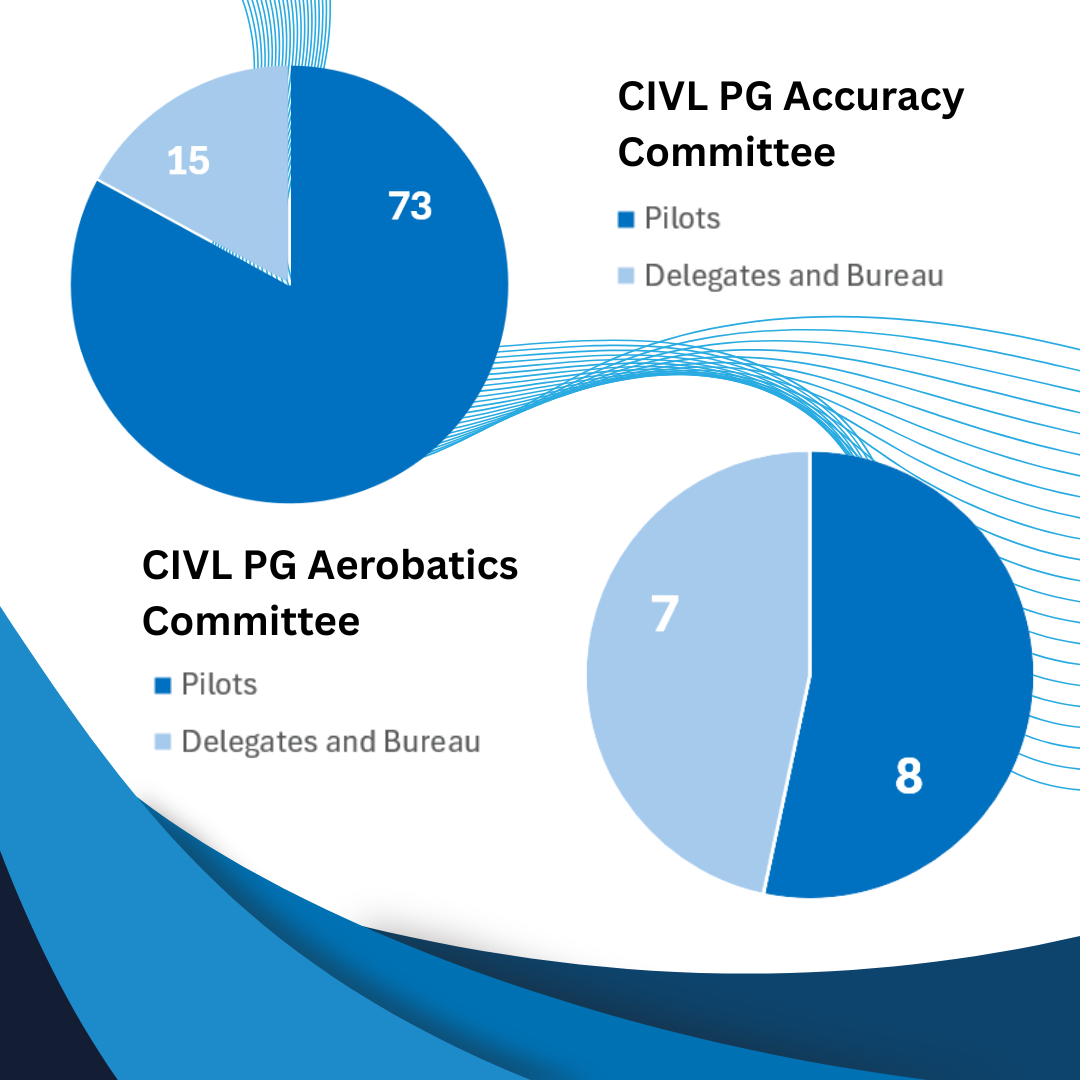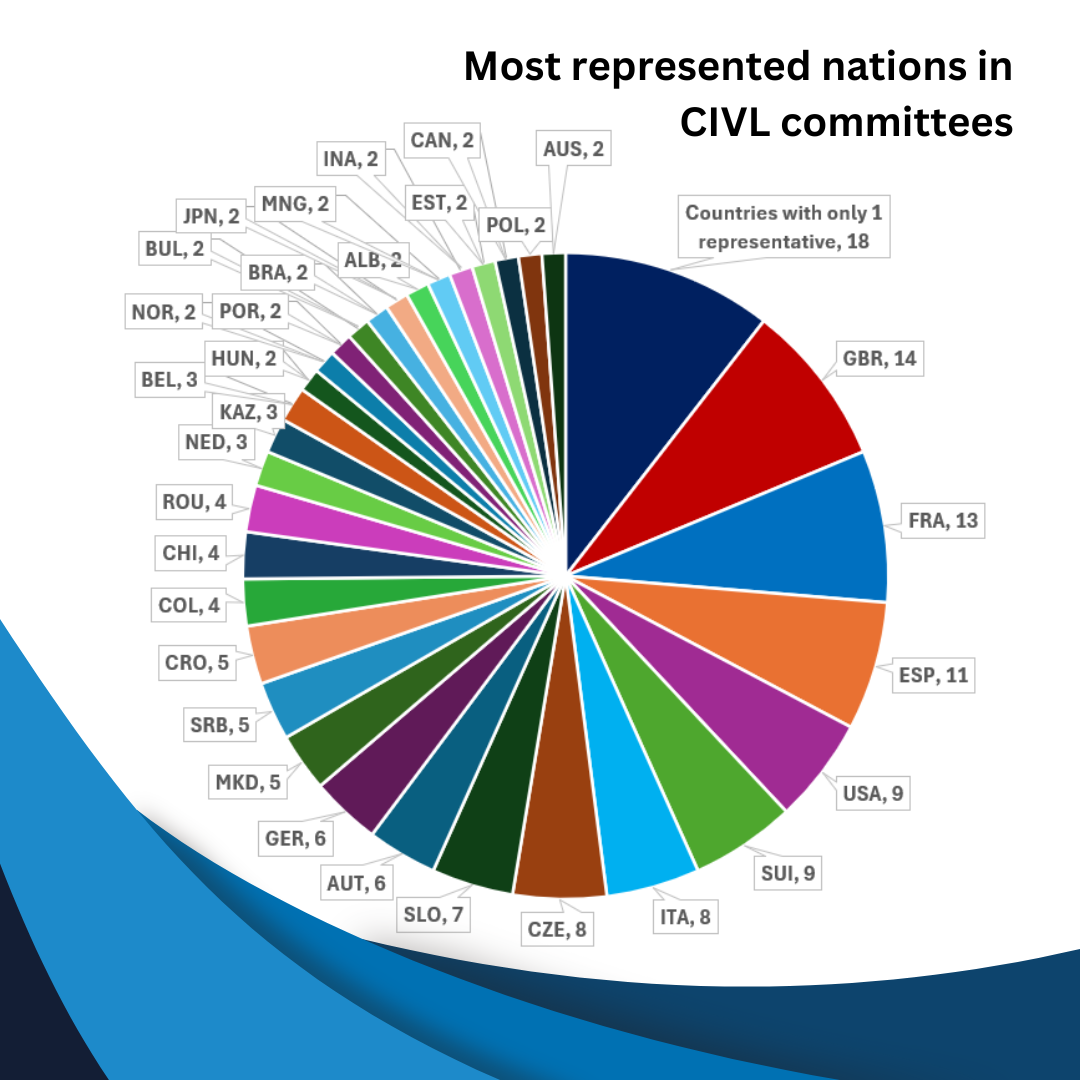Pilot Engagement in CIVL - how you can contribute
Pilots,
I and the rest of the Bureau have been talking to lots of pilots, team leaders, and delegates. During those discussions it’s become clear that some pilots don’t know the details about how CIVL (the entire organization, not just the Bureau) works and how you can contribute directly.
Each country’s air sports organization appoints a delegate who becomes that country’s official representative to CIVL. The delegates review and approve bids for Cat 1 competitions, propose rule changes, new competition formats, new scoring formulas and much more. They then get together yearly at the Plenary to discuss and approve the proposals. The delegates also elect the Bureau once every two years to run the day-to-day operations during the year and to take actions needed in-between Plenaries. The Bureau also proposes rule changes, new initiatives, and so on, but we are by no means the only people who can do so.
Much of real work of CIVL gets done in the working groups, which are a variety of groups in a tool called Basecamp. These working groups are active throughout the year. There are groups for each of the disciplines (which are called Committees) as well as specific working groups for things like software and scoring, the new harness standard, Sport Class, and more. For example, Hike and Fly is now a new discipline because the Bureau had the idea that we should embrace this part of the sporting community, we named someone to chair a new committee (Thomas Senac), and then Thomas and his team were off and running. They create the rulebook, the allocation system… everything needed for the sport to be properly run, which was then approved by the Delegates at the Plenary in 2024. The group continues to work as the discipline grows and evolves.
There are delegates and Bureau members in the working groups, and at times a Bureau member will step in to get a new idea rolling or to contribute themselves, but the vast majority of the people in these groups are not Bureau members or delegates—they are just competition pilots who’ve volunteered their particular expertise and time to discuss the ideas and then create the actual materials behind the proposal. This is not a closed system, and it is in no way constrained by the Bureau (other than to ensure things stay civil and constructive). Any pilot who feels they have something to contribute can. Many of the proposals from the past couple of years benefited from significant contributions from pilots who were not delegates or Bureau members. So, the notion that the CIVL Bureau sets rules in secret without pilot input is simply not the case. If you would like to contribute to one of these groups, contact civl_comps@fai.org. We do expect that discussions will stay civil and constructive--these groups are places to get work done. Are the working groups paragons of efficiency? No, they are not. But that too can be improved by the members and how the working group decides to manage itself.
Another thing that became clear is that some pilots are not aware that the decision to move the World Championship to Castello was made after we reached the point where the only choices available were to cancel the competition entirely or find a new organizer. The situation was explained to the delegates at the Plenary earlier this year and none of them disagreed with the decision. This was not a decision that anyone in CVBL or CIVL wanted to have to make in the first place. We all would have preferred to hold the competition in Andradas as planned, but that was no longer an option on the table. So, it was down to cancelling the event entirely or accepting the new option of Castelo. I’m sure that some of you are now thinking that cancelling it would have been your choice—but we weren’t hearing anyone asking us to cancel the event back in March. There were calls to keep it Andradas, yes, but again, that unfortunately wasn’t an option.
If you aren’t already in one of the working groups and want to actively contribute, we’d love to have you there. Many ideas have been generated in the past couple of weeks on how to improve safety and governance, with some already turned into proposals. Much work remains to be done and can benefit from your expertise.
Finally, we’ve heard we need to communicate more frequently directly to the pilot community, most of whom aren’t delegates or in the working groups. We agree, and we’ll be doing that, starting with this note and an update in October. We’ll also make greater use of surveys to get pilot opinions of various changes and proposals rather than only relying on the delegates and working groups for that input.
Bill Hughes, on behalf of the CIVL Bureau
CIVL Committees in Figures
Data collected on the date September 27, 2025





